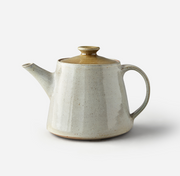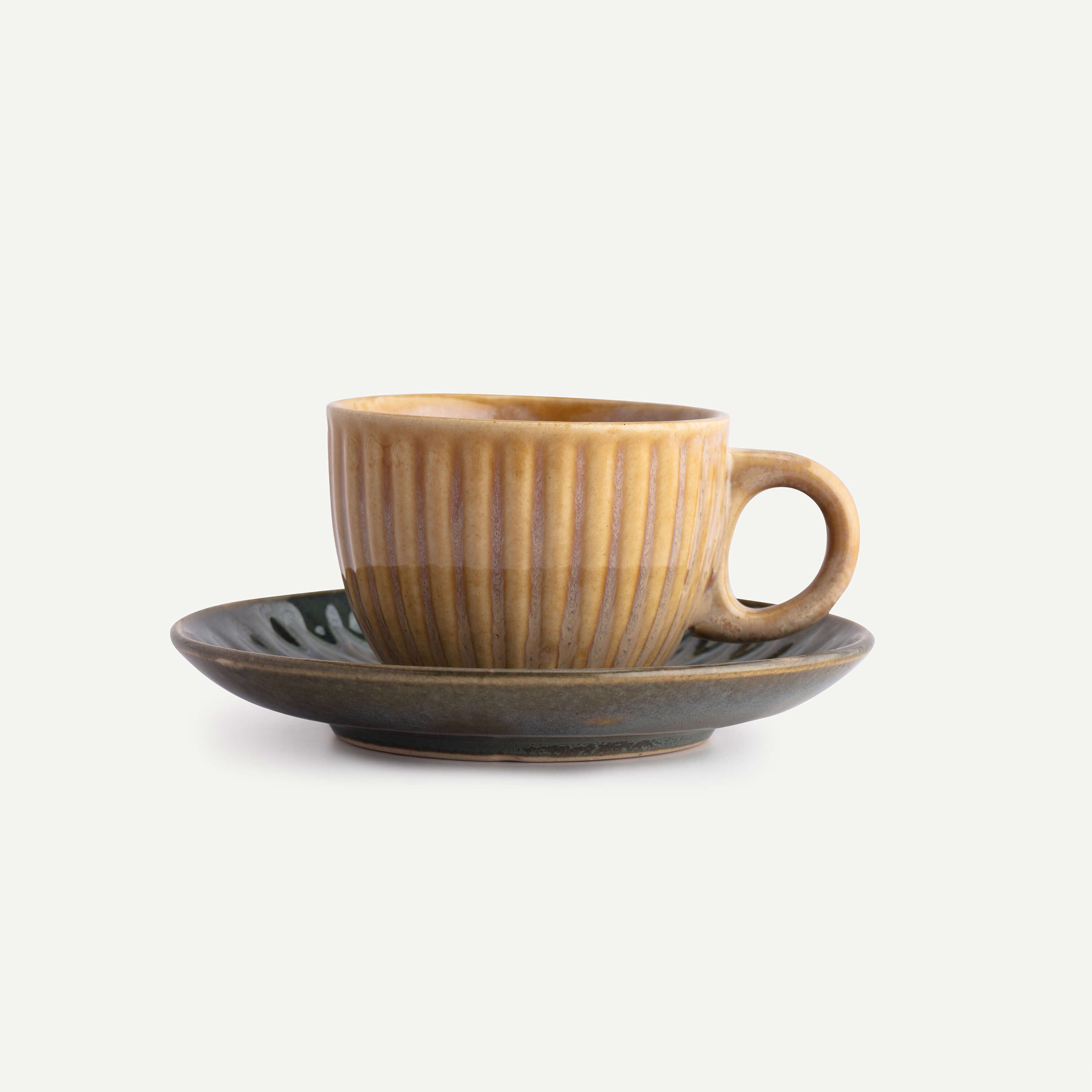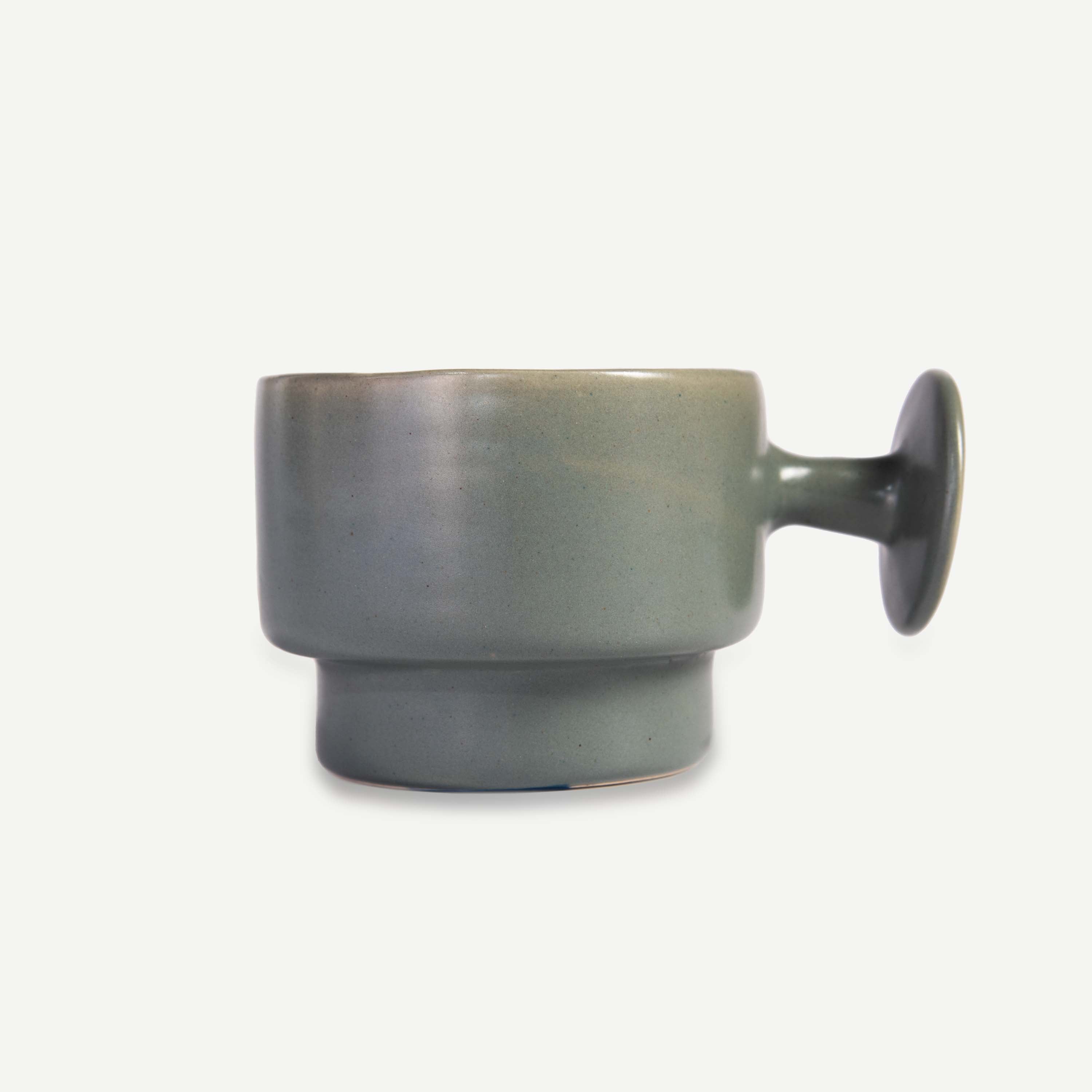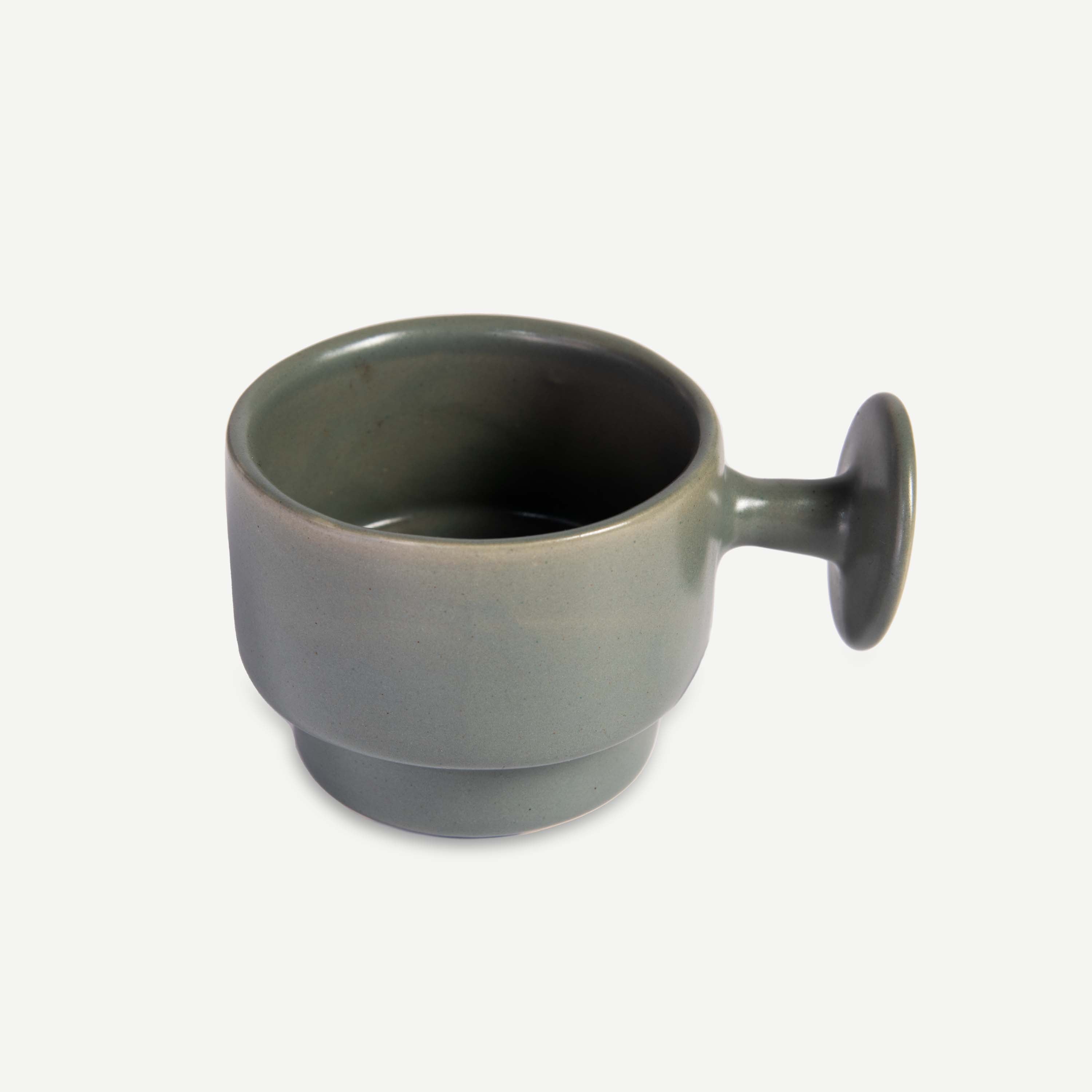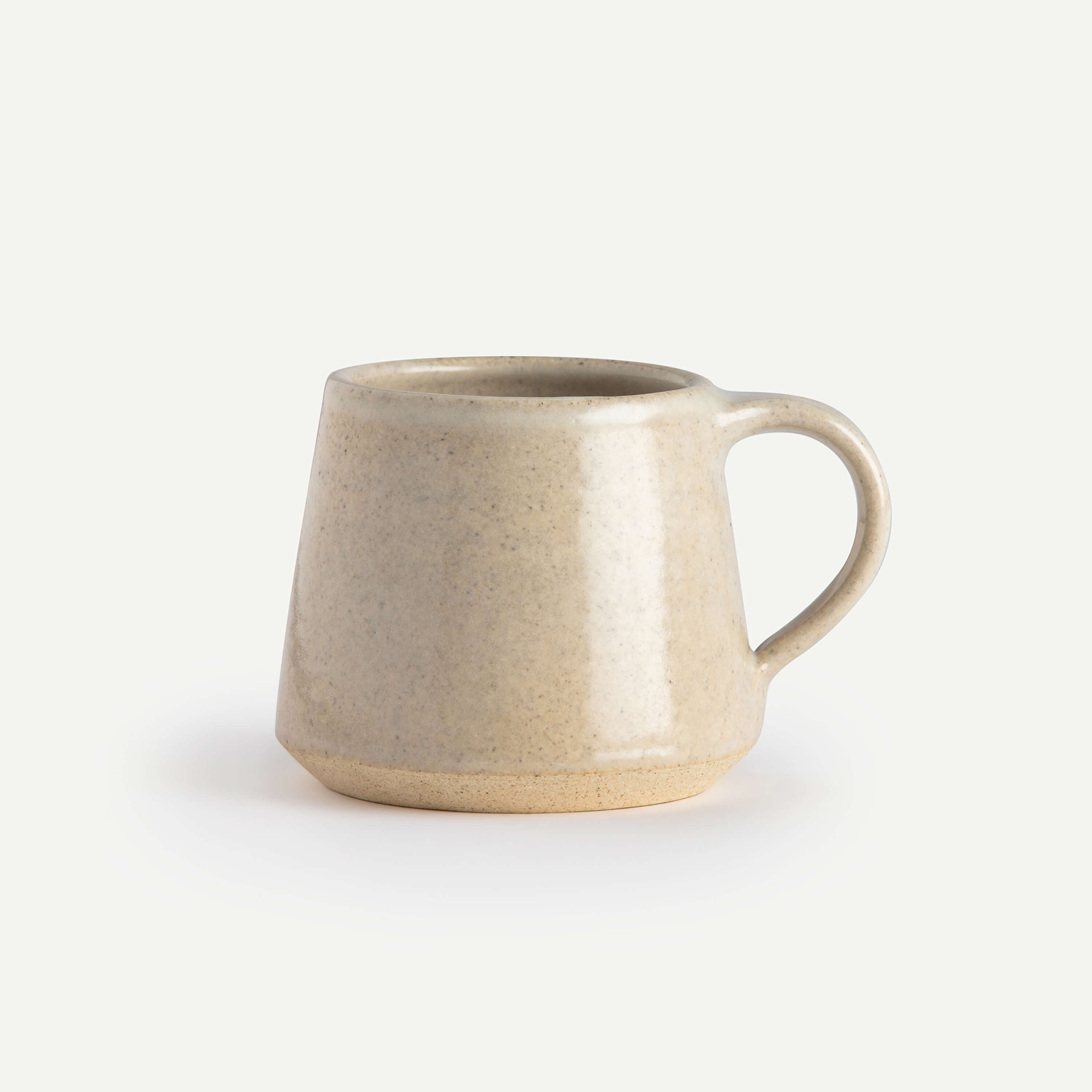NIRVAN TEA POT
A minimalistic teapot to serve you steaming hot tea after a long day.
![]() Only 2 Left
Only 2 Left
A minimalistic teapot to serve you steaming hot tea after a long day.
Craft Type: Studio Pottery
A craft inspired by a ubiquitous yellow vessel found in Indian kitchens, colloquially known as the Barni, Jaddi, Kola Jaadi, Bharnai or Jaadeelu. Our artist from Pondicherry has used her fond memories of watching a wise matriarch carefully store handmade pickles in off-coloured mustard jars to create tableware. Her pieces invoke the same feeling of quiet contemplation experienced while waiting for the pickle to cure in a quaint corner of the verandah. We mould the essence of the venerated Barni, into exquisite stoneware, with each piece manifesting a distinct mustard glaze.
This product is handcrafted and slight variations in colours, textures and forms are to be expected.
Made in: Pondicherry
Material: Stoneware
Dimensions (cm): 21.7(L) x 14(B) x 14(H); Dia: 14
Dimensions (inches): 8.5(L) x 5.5(B) x 5.5(H); Dia: 5.5
Capacity: 960 ml
Weight: 1020 grams
No. of pieces in a set: 1, One Teapot with Lid
Clay, a natural material, is used to make ceramic wares. It is kneaded and then thrown on a pottery wheel, where it is shaped by hand into this product. The clay product then goes through the process of bisque firing, glaze application, drying, and then glaze firing to make the final ceramic product.
Pottery in the Indian subcontinent has a long history — it has existed as a craft form for centuries. Evidence of earthenware has been found in the early settlements of Lahuradewa and later during the Indus Valley Civilization. Recent times have seen pottery taking on modern design sensibilities, aided by artists and potters that are breathing new life into the craft form. Studio pottery in India is said to have been started by Rabindranath Tagore in Shantiniketan, West Bengal. It further branched out into two styles, which developed in Delhi under Gurcharan Singh and in Pondicherry under Ray Meeker’s Golden Bridge Pottery.
- Wash by hand only, using a mild dishwashing soap. Dry using a soft towel or tissue. Avoid stacking in the sink.
- While stacking for storage, consider using tissue in between pieces.
- This ceramic product is microwave-safe.
- Description
- Process & Craft
- Care
Craft Type: Studio Pottery
A craft inspired by a ubiquitous yellow vessel found in Indian kitchens, colloquially known as the Barni, Jaddi, Kola Jaadi, Bharnai or Jaadeelu. Our artist from Pondicherry has used her fond memories of watching a wise matriarch carefully store handmade pickles in off-coloured mustard jars to create tableware. Her pieces invoke the same feeling of quiet contemplation experienced while waiting for the pickle to cure in a quaint corner of the verandah. We mould the essence of the venerated Barni, into exquisite stoneware, with each piece manifesting a distinct mustard glaze.
This product is handcrafted and slight variations in colours, textures and forms are to be expected.
Made in: Pondicherry
Material: Stoneware
Dimensions (cm): 21.7(L) x 14(B) x 14(H); Dia: 14
Dimensions (inches): 8.5(L) x 5.5(B) x 5.5(H); Dia: 5.5
Capacity: 960 ml
Weight: 1020 grams
No. of pieces in a set: 1, One Teapot with Lid
Clay, a natural material, is used to make ceramic wares. It is kneaded and then thrown on a pottery wheel, where it is shaped by hand into this product. The clay product then goes through the process of bisque firing, glaze application, drying, and then glaze firing to make the final ceramic product.
Pottery in the Indian subcontinent has a long history — it has existed as a craft form for centuries. Evidence of earthenware has been found in the early settlements of Lahuradewa and later during the Indus Valley Civilization. Recent times have seen pottery taking on modern design sensibilities, aided by artists and potters that are breathing new life into the craft form. Studio pottery in India is said to have been started by Rabindranath Tagore in Shantiniketan, West Bengal. It further branched out into two styles, which developed in Delhi under Gurcharan Singh and in Pondicherry under Ray Meeker’s Golden Bridge Pottery.
- Wash by hand only, using a mild dishwashing soap. Dry using a soft towel or tissue. Avoid stacking in the sink.
- While stacking for storage, consider using tissue in between pieces.
- This ceramic product is microwave-safe.









